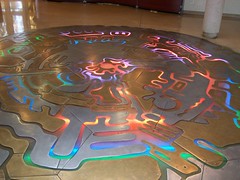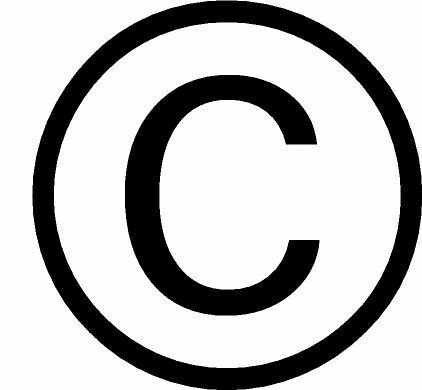 As I sat in silence one day, the phrase "go boldly" entered my mind. Go boldly where? Ideas bounced around my head and I want to share a few with you.
As I sat in silence one day, the phrase "go boldly" entered my mind. Go boldly where? Ideas bounced around my head and I want to share a few with you.We're approaching the end of the spring semester and the end of my copyright class. Graduate students have spent the semester learning and thinking about copyright. They learned for real what the law says, and now rely on that rather than hearsay. Once they learn about Fair Use, it becomes a part of the ongoing conversation. They like Fair Use, but then realize that a final determination of Fair Use does not rest with them (either as a user or a creator). They then get cautious about Fair Use. Finally, once they've dug into some court cases, they seem to re-embrace it. My message to them is indeed a version of "go boldly" and use Section 107 (Fair Use). Yes, use it or we might lose it.
Their third assignment is to dig into a copyright court case of their choosing. It is one of my favorite assignments, because of what students learn from it, what they then share with each other, and the boldness of both plaintiffs and defendants. In fact, some might even say that the courts themselves have been bold. Users of materials sometimes continue their use even after being contacted by the copyright owners (e.g., Legg Mason). Copyright owners may push ahead with appeals even when it doesn't seem as if they will win, because they clearly have something they want to prove (e.g., GSU). And the courts can boldly decide, overturn, and set new precedents (e.g., HathiTrust).
Being bold in terms of Fair Use, in terms of using the law overall, in terms of contesting specific uses does not happen if there are no original works in fixed form. This is the week after Prince died. He and David Bowie epitomized bold. Both boldly followed their passion. Both boldly created new music up until the end of their lives. Both are models, I think, of how we should live. Be giving, supportive, creative, thankful, gracious, active...like there is no tomorrow.
By the way, since our creative class is thankfully not going away, let's make sure that they understand how to protect their works, how to use the works of others, and especially how to push the boundaries of Fair Use. That will help them truly go boldly.


 When students in my graduate class get to the topic of music and copyright, the conversation is fast and passionate, with lots of questions. We all recognize that some musical forms are built upon improvisation and borrowing from other works. Both jazz and blues are like this, and we see this in rock and hip hop, too.
When students in my graduate class get to the topic of music and copyright, the conversation is fast and passionate, with lots of questions. We all recognize that some musical forms are built upon improvisation and borrowing from other works. Both jazz and blues are like this, and we see this in rock and hip hop, too.